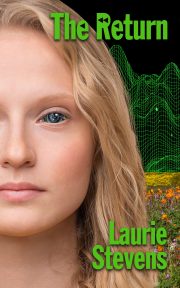The Productivity Monkey
by Deborah Walker
I don’t find productivity to be a one size fits all discipline. Sometimes a theory or technique just doesn’t resonate for me. For example, I’ve never got on with the Pomodoro technique, but some authors love it. I listened to a podcast recently where a motivational speaker was very insistent that if you don’t have goals then you can’t achieve anything worthwhile. Goals aren’t for me. I’d rather define processes rather than goals. I’ll write every weekday rather than I’ll finish a novel in a year. Many productivity experts swear by meditation, but I don’t care for it. The best advice for techniques is to try them on for size and see if they fit.
My first introduction to productivity was Rachael Aaron’s 2k to 10k: Writing Faster, Writing Better, and Writing More of What You Love. 2012. This book seemed to make a lot of sense, but although I thought the ideas would work, somehow I didn’t implement it. My fault, not the author’s.
Today, I’m discussing Chris Bailey’s international bestseller: The Productivity Project: Accomplishing More by Managing you Time Attention, and Energy. 2016.
Many productivity books present the author’s theories and techniques often illustrated with anecdotal evidence. The Productivity Project is different. The author spent a year immersing himself in the productivity literature, interviewing thought leaders and testing the productivity theories on himself and reporting the results. His experiments include mediating for thirty-five hours a week, spending 10 days in total isolation, and working a ninety hour week. This book is crammed with ideas and qualitative and quantitative data. It’s also very readable. There’s a takeaway message at the start of each chapter, a reading time and an end of chapter exercise to consolidate learning.
But as Chris Bailey seeks to examine the boundaries of human performance, this book fizzles with many ideas. It’s a fascinating read, with very implementable suggestions. It set me seriously on my productivity journey.
Here are some of the ideas which resonated with me.
Awareness is Key in Productivity. It’s so helpful to take a step back and see what can be done.
Multitasking is the Enemy. Yep. I’m afraid so. Even though it feels so good. Many researchers agree on this one. Multitasking with its inherent cognitive switching penalty is awfully wasteful. Productivity is all about the focus. I almost believe this is true, despite having written hundreds of short stories and a couple of novels task switching like a she-demon every 15 minutes. I’ve weaned myself off multitasking. Although I still love it so much that if I’m having a day when I’m not feeling it, I allow myself to multitask as a treat.
The Rule of Three. Every day, write down just three things you want to achieve on that day. This simple idea has been really helpful. Two years on, I’m still doing it.
Write an Achievement List. It’s very easy to forget all the things you achieve throughout the year, especially the little things. I’m not actually doing this one, but I should be.
You Can’t Manage Time. But you can manage your focus and energy. Everybody is different. Do your most important task in your biological prime talk.
The Internet is Killing Your Productivity. Perhaps I knew this one already?
Other interesting insights in the books are:
- Slowing down to work more deliberately
- Shrinking or elimination the unimportant
- Striving for imperfection
- Scheduling less time for important tasks
- Productive procrastination
This is a book crammed with ideas and insight. This is a book that improved my life. I still write at the same speed, I still produce the same amount of work, but I spend much less time doing it because when I’m writing, I’m writing. I’m not multitasking, and flickering through the internet, or getting distracted for an inexplicable 40 minutes when I just nipped downstairs to make myself a cup of coffee.
To be honest, these kinds of things do happen on a regular basis. I’m a work in progress. But knowing what I’m doing, where I’m spending my energy and focus and time, has allowed me to feel happier and in control in my writing life. The book also sparked in me an interest in productivity.
In future blog posts, I’ll examine different theories, in depth, and even follow in Chris Bailey’s footsteps to undertake experiments investigating how useful these theories are to one writer.
As for The Productivity Project, do seek it out, and more of Chris Bailey’s work. I think it will be a productive use of your time.
•••
Deborah Walker grew up in the most English town in the country, but she soon high-tailed it down to London, where she now lives with her partner, Chris, and her two teenage children. Her stories have appeared in Fantastic Stories of the Imagination, Nature’s Futures, Lady Churchill’s Rosebud Wristlet and The Year’s Best SF 18 and have been translated into more than a dozen languages. Her first novel, a space opera, As Good as Bad Can Get, was published last year.


